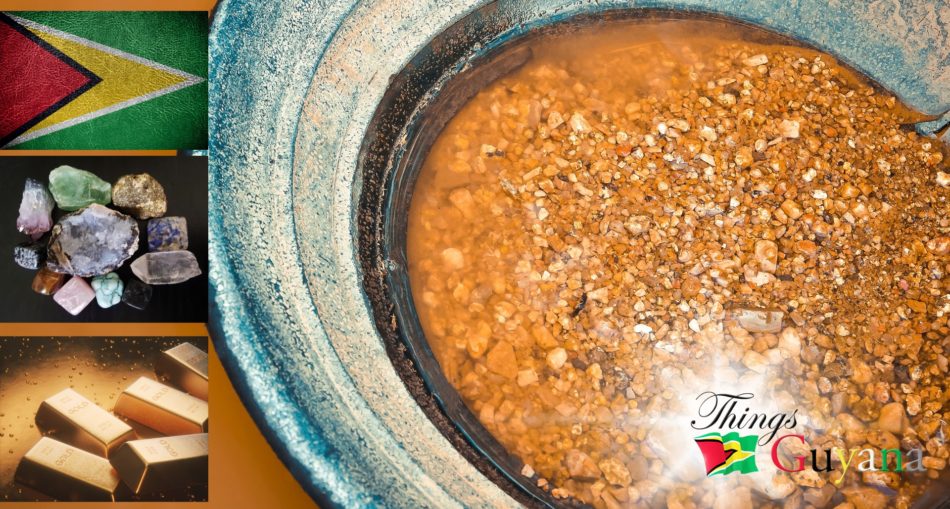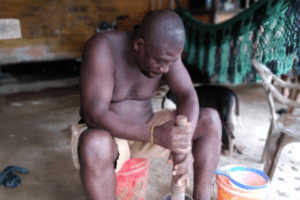Mining is an important industry in Guyana, with gold and bauxite being the primary resources mined in the country. The mining sector has played a significant role in the country’s economic growth and development, providing jobs and generating revenue for the government.
Guyana has a long history of gold mining, and it is estimated that the country has significant untapped gold reserves. In the 16th century, European explorers were drawn to the Guianas due to rumors of a golden city called Manoa, ruled by the golden king El Dorado. The mining of bauxite, which is used to produce aluminum, began in the early 20th century and has been an important source of income for the country.
However, like many other countries, Guyana faces challenges in the mining sector, such as environmental degradation and loss of biodiversity, and corruption.
There have been reports of corruption in the awarding of mining contracts and licenses, with some companies and individuals allegedly paying bribes to government officials to secure favorable terms and conditions for their mining operations. Additionally, there have been reports of illegal mining activities, where individuals and companies extract minerals without the proper licenses or permits, which can lead to significant environmental degradation and loss of revenue for the government. Indigenous communities are particularly affected by mining operations on their territorial lands.
Corruption in the mining sector can also have a negative impact on local communities, as it can lead to the displacement of people and the violation of their rights, and it can also prevent the proper distribution of revenues to the communities and the development of necessary infrastructure.
The government of Guyana has taken steps to combat corruption in the mining sector, such as implementing anti-corruption laws and policies and increasing transparency and accountability in the sector. Additionally, civil society organizations and the media have also played an important role in shedding light on corrupt practices in the sector and promoting the need for responsible and sustainable mining practices.
However, it’s important to note that corruption is a complex and persistent problem that requires a multi-faceted approach to tackle it. Combating corruption in the mining industry in Guyana will require sustained efforts from the government, civil society, private sector, and the international community.
The ‘Good’ about Mining in Guyana
Some positive impacts of mining include:
- Economic growth and development: mining can provide jobs and generate revenue for local communities and governments.
- Resource production: mining is a primary source of raw materials that are necessary for many industries, including construction, energy, electronics, and transportation.
- Infrastructure development: mining projects can lead to the development of new infrastructure, such as roads, power lines, and water and sewage systems.
- Technological advancement: mining can lead to advancements in technology, such as new equipment and processes that can improve efficiency and reduce environmental impacts.
- Community development: mining companies can provide social and economic benefits to local communities through investments in education, healthcare, and other social programs.
- Increased standard of living: mining can lead to increased access to resources, such as electricity and clean water, which can improve the quality of life for local communities.
- Resource conservation: mining companies can implement recycling and reusing plans to reduce the amount of resources needed to be extracted.
It is important to note that many of these benefits can be achieved through responsible mining practices, such as implementing environmental regulations, conducting environmental impact assessments and implementing reclamation plans.
The ‘Bad’ about Mining in Guyana
Some negative impacts of mining include:
- Environmental degradation: mining can cause damage to landscapes, water bodies, and air quality. This can occur through the removal of vegetation, disruption of ecosystems and the release of pollutants into the environment.
- Loss of biodiversity: mining can lead to the destruction of habitats and the displacement of plant and animal species.
- Water pollution: mining operations can contaminate water sources with chemicals and heavy metals, making it unsafe for human consumption and aquatic life.
- Soil erosion: mining activities can lead to the erosion of soil, making it difficult for vegetation to grow and potentially causing landslides.
- Air pollution: mining can release particulate matter and pollutants into the air, which can have negative health effects on nearby communities.
- Human rights violations: mining projects can displace local communities and can lead to land rights and labor rights violations.
- Reduced quality of life: mining can have negative impacts on the health, wellbeing and economic opportunities of local communities.
Interestingly, it is important to note that many of these impacts can be mitigated through responsible mining practices, such as implementing environmental regulations, conducting environmental impact assessments and implementing reclamation plans.
The government of Guyana has implemented regulations and policies to mitigate the negative impacts of mining, such as requiring environmental impact assessments, reforestation and rehabilitation of mined land, and monitoring of water quality. However, progress is slow and sometimes stagnant because of a lack of resources.
Additionally, the government has also been working to increase transparency and accountability in the mining sector by implementing policies that promote sustainable mining practices and strengthen the capacity of local communities, especially Indigenous communities, to participate in the decision-making process.
Overall, the mining sector in Guyana has the potential to bring significant economic benefits to the country, but it’s important that it is done in a responsible and sustainable way that protects the environment and the rights of local communities.







